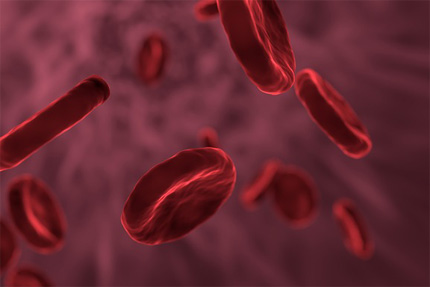The German part of a European patent on PCT diagnostic for sepsis of the Hennigsdorf-based medical device manufacturer B-R-A-H-M-S GmbH was partially invalidated by the BPatG.
On 17 December 2018, the Federal Patent Court (BPatG) partially invalidated the German part of the European patent EP 2 028 493 of B-R-A-H-M-S GmbH (4 Ni 16/17). Parts of the patent were maintained and are mentioned in detail in the declaration of invalidity below. The plaintiffs can provisionally enforce the judgment of the BPatG if they deposit a security amounting to 120% of the amount to be enforced – despite Brahms’ possible appeal against this judgment.
The action brought by three companies was successful in part because the BPatG found that the contested patent lacked patentability, with reference to a lack of novelty and inventive step.
Proceedings regarding patent EP 2 028 493
 Medical device manufacturer B-R-A-H-M-S GmbH emerged in 1994 from the traditional company Henning Berlin and belongs to the US group Thermo Fisher Scientific. Like B-R-A-H-M-S, the plaintiffs offer procalcitonin-based diagnostic kits. B-R-A-H-M-S sees this as a violation of the protection of its technology, which is protected by a large number of patent families in the patent portfolio. The basic patent expired in 2013.
Medical device manufacturer B-R-A-H-M-S GmbH emerged in 1994 from the traditional company Henning Berlin and belongs to the US group Thermo Fisher Scientific. Like B-R-A-H-M-S, the plaintiffs offer procalcitonin-based diagnostic kits. B-R-A-H-M-S sees this as a violation of the protection of its technology, which is protected by a large number of patent families in the patent portfolio. The basic patent expired in 2013.
The patent at issue EP 2 028 493 in the present case has already been tried before infringement courts. B-R-A-H-M-S filed a preliminary injunction against three companies at the District Court Munich I (Case No. 21 O 9715/16) for an injunction based on the patent in dispute. The procalcitonin assay offered and sold by one of the defendants indirectly infringes the patent, the Munich Court ruled in July 2016.
Patent claim on procalcitonin 3-116
In the present case, B-R-A-H-M-S’ European patent, which has now been partially declared invalid in Germany, concerns the invention, in accordance with the patent at issue, of new diagnostic methods which can be derived from new experimentally proven findings in connection with the occurrence of partial peptides of procalcitonin (PCT, ProCT) in sepsis or sepsis-like severe systemic infections. The importance of the precursor peptides of calcitonin, in particular the native procalcitonin (procalcitonin 1-116), as potential markers for various diseases had already been recognized several years before the seniority of the patent in dispute, the BPAtG clarified.
Brahms had argued that the patent claim already showed novelty because even a possible but unrecognized co-measurement of Procalcitonin 3-116 by known assays such as LUMItest® PCT was harmless. In contrast to the patent claim of the disputed patent, the state of the art does not teach to use an assay that detects procalcitonin 3-116 for the diagnosis of sepsis.
The BPatG rejected this argument. The immunoassays already known before the seniority of the patent in dispute, including the LUMItest® PCT of B.R.A.H.M. used in the patent in dispute, were rejected by the BPatG.S Diagnostica are not substance-specific for the native procalcitonin, which contains all 116 amino acids (procalcitonin 1-116), but also included as total procalcitonin other precursor peptides of calcitonin and thus also proteolytic cleavage peptides of procalcitonin 1-116, the court ruled. The starting point of the patent claim is procalcitonin, which can be detected in comparatively high concentrations in sepsis, but not completely with 116 amino acids, but with an amino acid sequence of only 114 amino acids – procalcitonin 3-116. Accordingly, the patent claim of the patent at issue is directed towards a method for diagnosing sepsis and thus towards a diagnostic method, not towards a method for detection or detection or even for quantitative determination or determination of the concentration of procalcitonin 3-116 in blood.
A multi-stage diagnostic procedure in the patent claim?
Brahms also argued that two steps were necessary, the first being to select the correct assay. Whether or not an identical technical instruction is based on a particular finding does not constitute any other doctrine under patent law as long as the finding is not expressed in the technical instruction, according to the court. Therefore, at least one technical procedural step is required for a diagnostic procedure accessible to patent protection, which as a rule has a multi-stage character. However, this is not the case, since the technical teaching of the patent claim does not make any statement as to which device has to be made available for performance even by the selection of the concept of detection, in particular not as to whether or with which type of selection procedure technically unsuitable measurement kits are initially distinguished from those which are suitable for performance of the diagnostic procedure. A mere qualitative proof is not sufficient to confer the predicate “marker” on a metabolic product in the context of a medical diagnostic procedure.
Annulment of the contested patent by BPatG
The European patent EP 2 028 493 is therefore declared invalid for the territory of the Federal Republic of Germany in so far as it goes beyond the following version:
- The method for the diagnosis of sepsis and sepsis-like systemic infections, wherein procalcitonin 3-116 is detected in a sample from the blood of a patient and wherein procalcitonin 2-116 or procalcitonin 3-116 is used as calibrator.
- The method according to claim 1, wherein the sample from the blood is a serum sample.
- The method according to claim 1 wherein the sample from the blood is a plasma sample.
In addition, the lawsuit had also focused on inadmissible changes to the application documents and the infeasibility of the patent. However, these claims were rejected by BPatG.
Would you like to read more about Pharmaceutical Patent?
- July 2018: SPC grant for hexavalent vaccine – on a formulation patent
- July 2018: ECJ verdict in SPC dispute over Gileads AIDS blockbuster
- Oct 2018: Validity of the SPC: appeal for prolonged duration possible
Do you need assistance in protecting pharmaceutical products or medicinal products?
Our patent attorneys and attorneys at law have many years of expertise in the entire pharmaceutical law, life sciences and healthcare.
Please do not hesitate to contact us.
Sources:
Federal Patent Court 4 Ni 16/17 (in German)
Picture:
allinonemovie /pixabay.com / CCO License








Leave a Reply